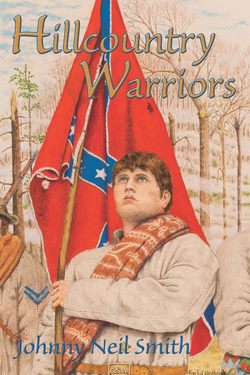Читать книгу Hillcountry Warriors - Johnny Neil Smith - Страница 7
На сайте Литреса книга снята с продажи.
PREFACE
ОглавлениеMany people, when thinking about the Ante-Bellum American South, view it as a land of plantations, columned mansions, slave holders, harsh overseers and a society that supported slavery as an institution that was both moral and necessary to maintain the economy. But this is not a totally correct summation. True, slavery helped promote and strengthen the financial system of the South, but many Southerners did not own slaves nor did they have any desire to support this so-called “peculiar institution.” So it was with many of the pioneers who settled the hillcountry of east central Mississippi.
These early settlers were living on land that did not lend itself to plantation farming. Most only raised enough food for themselves plus a little extra during the better farming years. In addition, many pioneers were first and second generations of Scotch-Irish folk possessing the ideas and values of their parents and grandparents who had struggled to get to America in order to seek a better life and, in some cases, just to survive.
These immigrants were from economic conditions not much better than those who were in slavery in the United States. In Scotland and Ireland, they had been poor tenants who were paying rent for land that barely provided a living. If the land did not produce, they still would owe the landlord his required sum. Many were then pushed off their land and in some cases were imprisoned for debts to their landlords. They knew about poverty and oppression and upon coming to America, many were sympathetic toward the plight of the Southern slave.
Even though these immigrants had been free to go as they pleased in the old country, in America they were not much better off than the Southern Negroes. Hillcountry people, who held little regard for the plantation system and what it represented, nevertheless found themselves entangled in the conflict that divided this nation, destroyed thousands of promising young lives, and turned family against family.
When the Civil War finally came to an end, the economy of the South had been destroyed along with its armies. Even though the hillcountry itself did not show the destruction that many areas of the war-torn South displayed, the destruction could be found in every family and in individual lives. In some cases physical injuries handicapped the Southern soldiers when they returned home, and all faced crushed dreams and a lack of hope that would plague them for the remainder of their lives.
Although many of these hillcountry warriors only fought to preserve their states' rights, and not for the institution of slavery, when the bloody conflict ended, they bore the same yoke of oppression as the slaveholders who fought to keep slavery legal in the South.
This is their story.
—Johnny Neil Smith
Monticello, Georgia
